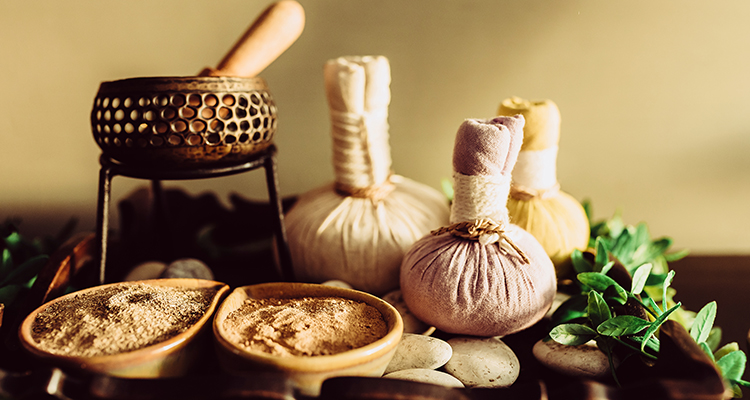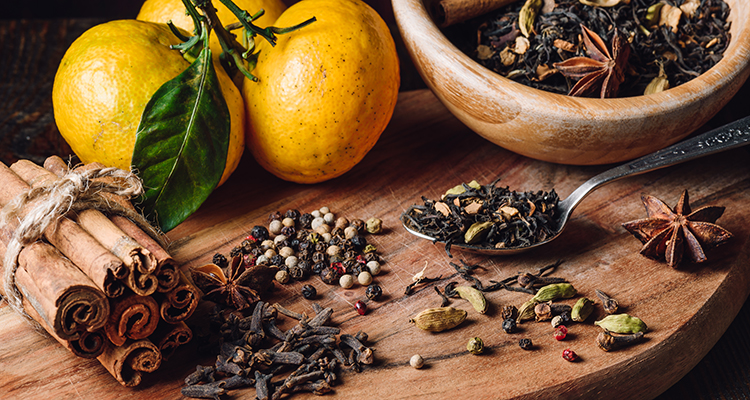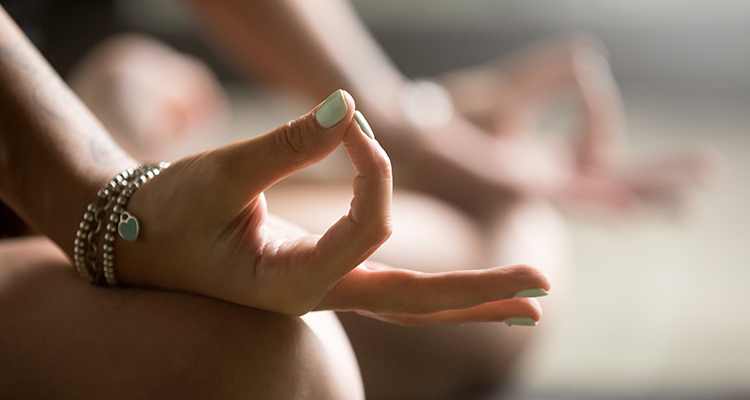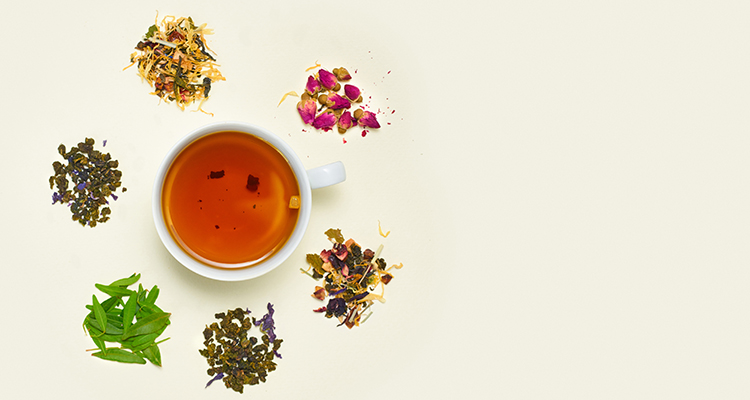The Best Indian Home Remedies for Sleep
When you’re struggling to achieve a quality night’s sleep, all aspects of your life are negatively affected. It becomes increasingly difficult to focus and concentrate and you may experience persistent daytime fatigue and impaired memory. Many insomnia sufferers also experience unwanted mood swings and irritability. In addition, lack of sleep can worsen pre-existing health conditions or create new ones.

With plenty of sleep aids and medications on the market, it can be tempting to simply pop a pill for a quick fix to your sleep troubles. While this is a viable option for some insomnia sufferers (and should always be done under the careful eye and guidance of a medical professional), you can also experiment with insomnia treatment at home. This approach usually involves lifestyle changes and consistency. It will also take patience.
Not every at-home method will work for you. The good news is, at-home treatment methods allow you to battle your insomnia in a comfortable environment that’s within your control. You can also create and adopt a treatment plan specific to your unique needs.
In this article, we’ll explore Indian home remedies for sleep that may offer an alternative approach to your current insomnia treatment plan. You may also discover new practices that support your existing routine.
Content
Check out our video on the best Indian remedies for sleep!
Understanding Ayurveda
Before we dive into the specific tips and techniques for treating insomnia at home, it’s important to understand what Ayurveda is and its significance in Indian culture. Ayurveda describes an alternative medicine system with deep historical roots in India and Indian culture. According to medical professionals, the premise behind Ayurveda is pseudoscientific, meaning the practices are not based on scientific research or proven methods. While the Indian Medical Association may not recognize Ayurvedic practitioners as legitimized doctors, many believers find their remedies and suggestions practical and useful.

Ayurvedic medicine is one of the oldest “whole body” healing systems in existence. It was developed more than 3,000 years ago as a holistic approach to treating common ailments and illnesses. The main premise behind Ayurvedic practices is that a person’s overall health and wellness are dependent on a delicate balance of mind, body, and spirit. Instead of fighting disease or illness, Ayurveda focuses on promoting good health and balance within the body. Certain treatments (like the ones we’ll be covering here) can be geared toward specific health issues, like insomnia. Ayurvedic medicine is comparable to CAM (complementary and alternative medicine) in the US, which includes techniques like massage and acupuncture.
Some in Indian culture believe that Ayurveda insomnia treatment (or anidra), can alleviate symptoms by balancing aggravated body energies. Remedies include certain lifestyle choices, diet, and supplements. Relaxing the mind is another important component of this treatment method.
Let’s now explore, in greater detail, some of the most successful Indian home remedies for sleep and easing insomnia symptoms.
Lifestyle Changes
In most cases, both acute insomnia and chronic insomnia are triggered by poor daytime and nighttime habits. By adjusting a few things in your routine and schedule, you can see a significant improvement in both sleep quality and quantity.

This same belief is evident in these Indian home remedies for sleep that involve making changes and improvements to your habits and behaviors.
Relax Using Meditation and Yoga
For centuries, both yoga and meditation have been linked with lower levels of stress, anxiety, and depression. Practicing meditation and yoga also promotes a balanced mood, increased confidence, and overall happiness.
Indian culture suggests that by utilizing the calming breathing techniques associated with both yoga and meditation, that you can learn to relax both the mind and body before bed. By reducing stress and helping the mind and body to slow down, you can reduce racing or negative thoughts that keep you awake at night.
Take a Warm, Soothing Bath
Another way to relax at night and prepare for sleep is to take a hot bath or shower before bed. While some people prefer showers over baths (or don’t have a bathtub at home), it’s recommended you sit in a hot bath for 90 minutes prior to getting into bed. The warm water helps ease tension, tight muscles, and nerve endings. While the hot water from a shower will do the same, lying in a bath allows you to completely relax and release your muscles. In a shower, you’re much more alert and less at ease.
Complement your warm, soothing bath with calming essential oils like lavender, chamomile, or rosemary. These fragrances are said to help relax you and promote feelings of calm and serenity. You can add a few drops of oil directly to the bathwater, use an essential oil diffuser, or light a candle.
Reduce Screen Time
It’s common practice for some people to watch television or scroll through their social media feeds before bed. While this may seem like a calming activity, exposure to screens can actually aggravate insomnia symptoms and make it harder to fall and stay asleep. The blue light given off by screens prevents your brain from releasing melatonin — the natural chemical associated with sleep. When night falls, your brain begins releasing melatonin in preparation for sleep. Spending too much time looking at a screen prior to bedtime can interfere with this process and disrupt your body’s natural sleep-wake cycle (circadian rhythm).
Ayurveda suggests shutting off your screens at least 2 hours before bed. Instead of watching TV, playing video games, or even reading a book on a Kindle or other digital device, adopt more calming activities. This is the perfect time to practice your yoga or meditation routine, write in a journal, or read from a book.
Engage in Physical Activity
It’s recommended that adults engage in between 2 hours and 30 minutes and 5 hours of moderate-intensity physical activity every week or between 1 hour and 15 minutes and 2 hours and 30 minutes of vigorous-intensity activity. A combination of these recommendations is also acceptable. Physical activity promotes a healthy weight, strong immune system, and overall longevity. It’s also attributed to better mental health and self-confidence.

Utilize Ayurvedic Techniques
In addition to the above-mentioned practices and lifestyle changes, Indian culture strongly supports specific Ayurvedic techniques and therapies for treating insomnia and promoting sleep. These therapies are designed to relax the mind and quell sleep disorders.
One specific method is known as Shirodhara. This therapy involves oil dripping on your forehead in a steady stream. The practice is meant to be soothing, relaxing, and calming for both the mind and body. Not only can Shirodhara improve sleep quality, but it may help reduce stress, and treat certain anxiety disorders. Similarly, Talaphothichil (or Shirolepa) involves applying medicinal paste to a person’s entire scalp. By healing issues related to the neck and head like migraines and sinusitis, Talaphothicil may also ease insomnia symptoms and treat hypertension. It’s also used to alleviate mental illnesses and as a form of detoxification.
Another popular Ayurvedic technique for easing insomnia symptoms is Uzhichil. A type of deep tissue massage, this Ayurvedic therapy improves blood circulation while softening and toning the skin. Uzhichil may relieve insomnia, anxiety, mental stress, hypertension, headaches, and certain nervous disorders.
Reduce Caffeine Intake
Before we discuss what foods and drinks Indian culture suggests you include in your diet for improved sleep, it’s important you know which ones to eliminate. Caffeine is a stimulant responsible for not only insomnia but anxiety, headaches, restlessness, shakiness, and abnormal heart rhythm. While these effects are not present in all those who consume caffeine, if you’re suffering from sleep disturbances, caffeinated foods and drinks could be aggravating your symptoms.
For those suffering from chronic or severe insomnia, Ayurvedic practitioners suggest completely eliminating caffeinated products from your diet. This includes coffee, tea, and all other beverages. Certain chocolate and chewing gums may also contain trace amounts of caffeine. If your insomnia symptoms are mild or acute, reduce your intake of caffeine during the day and stop all use by dusk to prevent difficulty falling and staying asleep.
Dietary Changes
Many Indian home remedies for sleep involve incorporating certain foods and drinks into your daily regime. Indian culture believes that these items can help ease insomnia symptoms by improving your overall health and well-being, reducing stress, and balancing your body’s energies.

Here are some of the most beneficial foods, ingredients, and beverages for sleep according to Ayurveda.
Apple Cider Vinegar
Widely recognized for its many health benefits including weight loss, low blood sugar levels, and healthy cholesterol, apple cider vinegar is also believed to help regulate your sleep cycle. The amino acids in apple cider vinegar are said to reduce fatigue by breaking down the fatty acids that release tryptophan. Tryptophan helps make melatonin and serotonin — two important chemicals for maintaining healthy sleep patterns.
For optimal results drink 2 teaspoons of apple cider vinegar and honey mixed in a warm glass of water right before bed. Natural raw honey is the best type for this mixture, as it is said to help cure sleep disorders and disruptions.
Bananas
Full of potassium and vitamins B6 and C, bananas are a healthy part of any balanced diet. But according to some Indian healers, bananas can also improve your sleep quality. In addition to potassium, the calcium and iron in bananas promote good sleep. Not only that, but bananas are a sweet and delicious healthy snack you can enjoy before bed. Eat it alone or drizzled with natural raw honey as a small treat that will satisfy your sweet tooth while also promoting a good night’s sleep.
Warm Milk
Another Indian home remedy for sleep involves drinking warm milk before bed. The warmth of the thick liquid is soothing for the mind, body, and soul. Milk also contains tryptophan which may stimulate melatonin production, helping prepare you for sleep. Boil 8 ounces of milk and add a touch of cinnamon for added sweetness and flavor.
Herbal Teas
Herbal teas are popular in numerous cultures for their many health benefits including a boosted immune system, improved brain function, and a healthy digestive system. In Ayurveda, certain teas can help ease insomnia symptoms and promote quality sleep.

Chamomile tea is widely recognized as a sleep inducer and mild tranquilizer. Indian culture suggests brewing a hot cup of tea before bed to enjoy its soothing, relaxing properties. As with other items on this list, you can add a teaspoon of raw honey to your tea for sweetness and additional benefits. The warmth of herbal teas, in general, produces increased body heat, making you sleepy.
Fenugreek and Aniseed Water
Who knew that certain types of water might actually reduce insomnia symptoms? While staying hydrated is an important part of overall health and well-being, these specific waters are believed to help induce sleep.
Fenugreek has been used in Indian cuisine since ancient times. Drinking fenugreek water during the day may help with weight management and proper body function. At night, it can help improve sleep by reducing anxiety and dizziness. Soak a teaspoon of fenugreek seeds in water overnight. Strain out the seeds and drink the water daily.
Aniseed is a similar ingredient with similar effects on your sleep quality. A popular spice in Indian cuisine, aniseed is said to cool body temperatures, promoting better sleep. Unlike fenugreek which should soak overnight, you can soak a tablespoon of aniseed in a glass of water for just 2 hours before draining the seeds and drinking.
Cumin Seeds
Cumin is another popular spice that has medicinal properties which may ease insomnia symptoms when used before you go to bed. Not only is cumin said to induce sleep but it also promotes proper digestion, reducing the risk of an upset stomach or indigestion at night. Cumin tea is a popular choice before bed. You can also purchase cumin powder and add it to your dinner or mix it with a mashed banana for double the benefits!
Saffron
Saffron is the world’s most popular, and costly, spice. Not only does this spice carry a big price tag but also has major benefits for insomnia sufferers. The spice is believed to have sedative properties that help calm your mind, ease muscle tension, and relax your nerves. According to Indian culture, the best way to enjoy saffron for sleep is to steep two strands of the spice in a cup of warm milk and drink it directly before bed.
Easily Incorporate These Indian Home Remedies Into Your Daily Life
The best part of these Indian home remedies is that many of them can easily be incorporated into a healthy sleep routine and schedule, which is something you should also have in place. Our bodies thrive on routine. By establishing a sleep schedule and consistent sleep habits, you’re setting yourself up for success.

Try going to bed and waking at the same time every day. Shut off your screens two hours before bed and engage in some of these Indian home remedies. For example, brew a hot cup of tea or milk and sip it while sitting in a warm, soothing bath. Make yourself a snack of bananas and honey and enjoy it while reading a book or after meditating at night. Replace your coffee with healthy herbal teas and try drinking fenugreek or aniseed water throughout the day. Schedule time for plenty of physical activity and treat yourself to a soothing Ayurveda massage whenever possible.
All of these small changes can make a big impact on your sleep and overall health.
Quality Sleep Promotes a Better Quality of Life
Sleep, productivity, and overall health and being are all closely linked. By investing in your sleep quality, you’ll notice improvements in all other aspects of life including your mood, focus, motivation, and health. These Indian remedies, while not proven as a medical treatment for insomnia, can help improve sleep quality and support your current treatment plan.

Are you looking to incorporate different forms of therapy, meditation, and acceptance into your sleep routine? Find out how Somnus Therapy can help.













